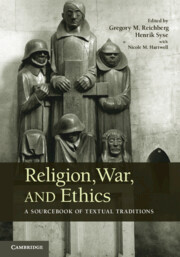Book contents
- Frontmatter
- Contents
- Notes on Contributors
- Preface
- Introduction
- 1 Judaism
- 2 Catholic Christianity
- 3 Eastern Orthodox Christianity
- 4 Protestant Christianity
- 5 Sunni Islam
- 6 Shi‘ite Islam
- 7 Hinduism
- 8 The Buddhist Traditions of South and Southeast Asia
- 9 Chinese and Korean Religious Traditions
- 10 The Religious Traditions of Japan
- 11 Sikh Tradition
- Index
- References
9 - Chinese and Korean Religious Traditions
Published online by Cambridge University Press: 05 June 2014
- Frontmatter
- Contents
- Notes on Contributors
- Preface
- Introduction
- 1 Judaism
- 2 Catholic Christianity
- 3 Eastern Orthodox Christianity
- 4 Protestant Christianity
- 5 Sunni Islam
- 6 Shi‘ite Islam
- 7 Hinduism
- 8 The Buddhist Traditions of South and Southeast Asia
- 9 Chinese and Korean Religious Traditions
- 10 The Religious Traditions of Japan
- 11 Sikh Tradition
- Index
- References
Summary
During a large part of the first millennium BCE, before the second century BCE, a variety of philosophical and political traditions rivaled each other in China, but the dominant religious and political tradition after the second century BCE and until the beginning of the twentieth century in both China and Korea was heavily based on Confucian teachings. Confucianism envisions society as a vertically structured organic entity – and extension of a large patriarchal family – in which the rulers are entitled to “civilize” the ruled through imposition of ethical norms, ritual, and music. Confucianism prioritizes socio-political stability and thus favors “soft” governance, allowing the ruled to preserve their traditional clan structures or local autonomy and strongly disapproving of excessive military expenses.
Introduction
For East Asian political thought, especially after the maturing of the Confucian and Taoist traditions (fifth to third centuries BCE), warfare was an inherently contradictory subject. On the one hand, it was commonly agreed that, in practical terms, the welfare and the very existence of the state depended on its military capabilities. On the other hand, the agrarian polities of the region tended to focus on the inescapable negative consequences of any, even successfully prosecuted, war – that is, disturbances in the agricultural cycle due to war-related mobilizations and decrease in the numbers of taxpayers and corvée laborers due to the inevitable losses of human resources. In ideological terms, the darker side of war was often described as a breakdown of the “harmonious” societal order based on highest Confucian values such as “humaneness” (Ch. ren, Kor. in). War was thus seen as a catastrophic event – even if unavoidable and in certain situations desirable. To mitigate this contradiction, East Asian thinkers often conceptualized war as an extension of criminal justice. “Righteous war” was seen as a just punishment reserved for “evil rulers” who misgoverned their states, rebels, “outer” barbarians, and other real or potential disturbers of the “normal” societal order. In this way, a “just” war was redefined as a way toward a restoration of cosmic and societal harmony rather than a cause of its breakdown. In this connection, the moral qualities of both war-making politicians (kings and their ministers) and soldiers (especially high-ranking officers) were crucial. “Just” war was expected to be prosecuted by “just” people.
- Type
- Chapter
- Information
- Religion, War, and EthicsA Sourcebook of Textual Traditions, pp. 597 - 630Publisher: Cambridge University PressPrint publication year: 2014

